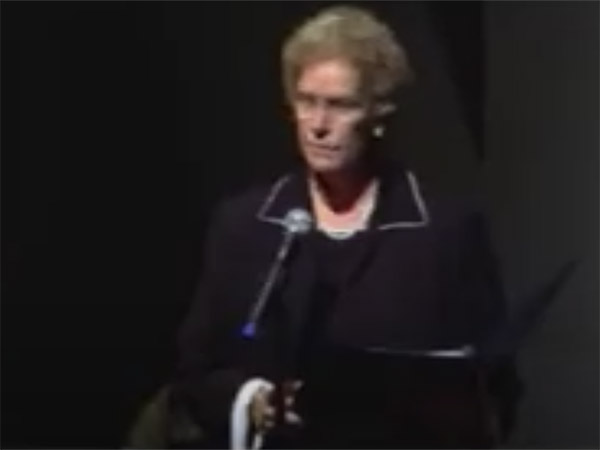The diagnosis was tough. My 18-year-old brother, Chris and my parents had been working with a pastoral counselor who thought my brother suffered from depression.
Then my Mom called to tell me Chris was walking around Towson with cardboard on his feet collecting tin cans. I found Chris and immediately took him to John Hopkins Hospital. When the doctor interviewed him, I wanted to sit in but Chris objected. I will never forget when the door opened and the doctor explained to me how Chris heard voices, friendly voices, and that he had schizophrenia.
I remember asking if this could be caused by some sort of illegal drug use. My Dad was convinced that was the problem and he told me to ask. Well, that was the wrong question to ask the doctor. He went off on me like a strike of lightening. This boy is sick he said. He has a major mental illness. This has nothing to do with smoking dope. “Hey, hey, hey,” I snapped back. “I’m just the sister…back off a little bit. I’m trying to get some answers.”
As I look back, I’ve come to realize why I was in this role of talking to the doctors and getting the bad news. My Mom needed all of her energy just to deal with her grief. I believe she knew the reality of what was happening to Chris way before the rest of us and just could not deal with hearing the news from strangers.
But it was hard for me. My brother Chris and I were four years apart in age but we were very close. We had worked together serving newspapers in Homeland, cutting lawns on Belvedere and in Govans, catering for Jerry’s’. We shared the love of basketball and all sports. Sometimes people thought we were twins.
Years later, my Mom said to me, I should never have placed you in that position. Now I realize she saw me as someone who’d been to college and taken PSYCH 101. Perhaps, I’d know what to do and where to go.
We knew Chris was the same wonderful son and brother. We so wanted to get him back to the way we knew him before the diagnosis. But instead we were moving onto a different path and it felt like a death.
The first 18 years of Chris’s life were beautiful. The next 18 years were heartbreaking. He was no longer the star athlete that college coaches were looking at. Holiday gatherings brought anxiety for him. The constant chatter of such a large family caused Chris to leave early or at least go out often for a cig.
Eventually we began to make it through the Le Brea tar pits known as the mental health system. We often felt stuck and unable to navigate. It took my entire family to make it through. God help the individual with no family support or resources. They are always in my prayers.
People who knew Chris before his illness continued to be friendly. For instance he played softball on the team with my other brothers. Yet Chris knew he wasn’t the same as the other young men. He knew they were starting their own careers and families while he never would.
Chris often felt frustrated and many times angry. He spoke about his need to control his emotions and how angry he would get when his thoughts turned to people he felt were trying to control him. He stated that these thoughts usually lead to “me trying to hurt myself somehow.” Despite medications, his anxiety sometimes became unbearable. Like the time my father was experiencing a heart condition – Chris worried so much he had to be hospitalized.
But no amount of challenges with Chris prepared me for his death twelve years ago.
My brother died from a sudden death heart attack in front of St. Dominic’s Church on Harford Road. He was 36 years old. People did not assist him with medical support. This was most likely due to the fact that he usually dressed in jeans and an army jacket and often looked pretty rough. The ambulance took awhile to get to him and even though they tried to save him at Good Sam, he must have lost the battle to live even prior to his arrival.
I arrived at the hospital first. Again, I had to find the words to tell my parents the saddest news of all. These are the words I had told many families based on my work in the police force: “I’m sorry but he is dead” — yet they now seemed so shallow.
I remember when we went in as a family to see Chris. He was so peaceful and calm. He looked like an angel. They let us stay with him a long time but we knew it would never be enough. Kind words and caring were all around but I could not hear or feel it. There would be no relief for a long, long time.
The hardest part was being honest about my feelings. How many times I felt that so much of my brother’s true personality had already died. His mental illness had taken so much out of him.
I remember thinking how our life as a family would change dramatically: The constant worry about Chris would cease, the five calls a day would vanish, the need to help Chris un-clutter his room and get him the daily allowance would be gone.
Also gone were the daily squeeze plays, the hugs that connected us. How sad we were but at the same time how conscious we were that other NAMI families with mentally ill loved ones still had to deal with so many daily problems.
Even so, the truth that’s so hard to express is – despite the stress, the difficulties, we wish our Chris was still with us.
What keeps me going is that all I learned during the last 18 years of Chris’ life, I’ve been able to bring to my job at a local law enforcement agency. This is how Chris lives on to tell his story and teach others.







